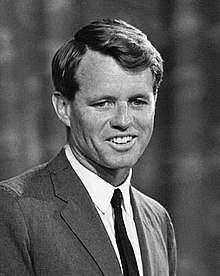Robert F. Kennedy Human Rights
| Founded | 1968 |
|---|---|
| Founder | Ethel Kennedy |
| Type |
Operating public charity (IRS exemption status): 501(c)(3)[2] |
| Focus | Human Rights |
| Location |
|
Area served | Worldwide |
| Method | Awards, Advocacy, Partnerships, Education |
Key people |
Kerry Kennedy, President |
| Website | http://www.rfkhumanrights.org |
Robert F. Kennedy Human Rights (formerly the Robert F. Kennedy Center for Justice and Human Rights, or RFK Center)[1] is a human rights advocacy organization, a nonprofit charitable organization that works to realize Senator Robert F. Kennedy's dream of a peaceful and just world by advancing human rights. It works to support recipients of the RFK Human Rights Award, supports investigative journalists and authors through the RFK Book and Journalism Awards, and educates the public and empowers students to create change in the classroom. It is based in Washington, D.C.
History
The Robert F. Kennedy Memorial was originally a non-profit organization established in Washington, D.C. in October, 1968 by the Kennedy family and others to memorialize Robert Kennedy's public service following his assassination on June 5, 1968, in Los Angeles, California. Fred Dutton, a long-time friend and Kennedy ally, was named executive director and Peter B. Edelman, a member of Kennedy's senatorial staff, became associate director. The chairman of the executive committee was Robert S. McNamara.
The Memorial was announced during a press conference at Hickory Hill (McLean, Virginia) on Tuesday, October 29, 1968. Ted Kennedy led the press conference, stating that the organization would be a "living memorial" that would work in areas of poverty, crime, and education in America. He went on to say the Memorial would be "an action-oriented program that we think will carry on his concerns, his actions, his efforts to work on so many of the problems in this country that have no solutions." He was joined at the press conference by his sisters, Patricia Kennedy Lawford and Jean Kennedy Smith, as well as dozens of Kennedy family friends and aides.[3]
Robert Kennedy's widow Ethel Kennedy did not attend the press conference, but was nearby, in a second-floor bedroom of Hickory Hill on doctor's orders, awaiting the birth of her eleventh child. She issued a statement saying it was the hope of her husband's family and friends that the Robert F. Kennedy Memorial would carry forward the ideals he worked for during his lifetime: "He wanted to encourage the young people and to help the disadvantaged and discriminated against both here and abroad, and he wanted to promote peace in the world. These will be the goals of the memorial."[4]
The memorial and other projects started in Kennedy's memory were later collectively renamed Robert F. Kennedy Human Rights. The organization works to advance human rights through litigation, advocacy, and education.[5]
Board & Trustees
Founder
Ethel Kennedy, after Robert F. Kennedy was assassinated. In honor of her husband, Ethel, along with friends and family, created the Robert F. Kennedy Memorial - now Robert F. Kennedy Human Rights - to ensure his spirit would live on through improving human rights around the world.[6]
Chairperson
Robert F. Smith is Chairman of the Robert F. Kennedy Human Rights. [7]
Board of Directors and members
- Terry Mazany is Co-Vice Chair, Robert F. Kennedy Human Rights Board of Directors [8]
- Anthony Williams, Partner, Dentons; Treasurer and Secretary, Robert F. Kennedy Human Rights Board of Directors.[9]
- Frank Baker, Co-Founder and Managing Partner, Siris Capital [10]
- Peter Barbey, President & CEO, The Village Voice [11]
- Harry Belafonte, Activist/Entertainer, Belafonte Enterprises, Inc. [12]
- Tonio Burgos, CEO, Tonio Burgos and Associates[13]
- Tim Cook, CEO, Apple [14]
- Stephen DeCherney, Clinical Professor of Medicine, and Professor (Adjunct) Business in the Kenan-Flagler School of Business, University of North Carolina, Chapel Hill, NC. [15]
- Peter B. Edelman, Co-Director, Joint Degree in Law and Public Policy; Faculty Director, Center on Poverty, Inequality, and Public Policy, Professor of Law at Georgetown University[16]
Human Rights Advocacy
Established by Kerry Kennedy in 1987, RFK Human Rights consists of three core programs: Partners for Human Rights, which works to create lasting change through litigation, advocacy, and training; Speak Truth To Power, a human rights education program; and RFK Compass, a sustainable investing initiative.[1]
Human Rights Award
The Robert F. Kennedy Human Rights Award was created by Kathleen Kennedy Townsend in 1984 to honor individuals around the world who show courage and have made a significant contribution to human rights in their country.
In addition to receiving a financial award, laureates can partner with Robert F. Kennedy Human Rights on projects to advance their human rights work, benefiting from the resources and technologies at the foundation's disposal. Some have achieved their goals, some are in exile from their home country. The majority continue to live in their home country and work with the support of the center to establish the human rights they are working for. Since 1984, awards have been given to 43 individuals and organizations from 25 different countries. The 2009 award was presented by President Barack Obama.[17] In 2009, the RFK Center began a partnership with the California International Law Center (CILC) at the University of California, Davis School of Law focusing on the crisis in Darfur.[18]
Laureates
- 2018 : Color of Change , International Indigenous Youth Council, March For Our Lives and International Indigenous Youth Council,

- 2017 : Alfredo Romero,

- 2016 : Just Leadership USA and Andrea C. James,

- 2015 : Natalia Taubina,

- 2014 : Adilur Rahman Khan, Bangladesh[19]
- 2013 : Ragia Omran,

- 2012 : Librada Paz,

- 2011 : Frank Mugisha,

- 2010 : Abel Barrera Hernández,

- 2009 : Magodonga Mahlangu & Women Of Zimbabwe Arise (WOZA),
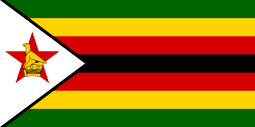
- 2008 : Aminatou Haidar,
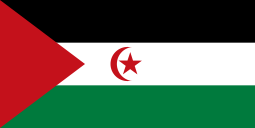
- 2007 : Mohammed Ahmed Abdallah,
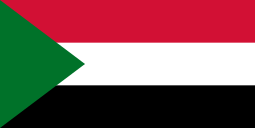
- 2006 : Sonia Pierre,

- 2005 : Stephen Bradberry, New Orleans, Louisiana,

- 2004 : Delphine Djiraibe,
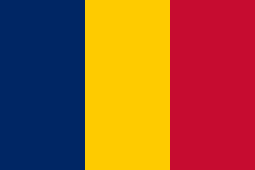
- 2003 : Coalition of Immokalee Workers,

- 2002 : Loune Viaud,
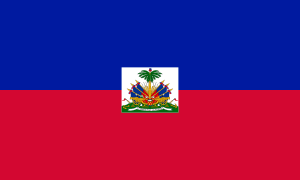
- 2001 : Darci Frigo,

- 2000 : Martin Macwan,

- 1999 : Archbishop Michael Kpakala Francis,
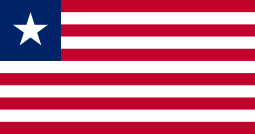
- 1998 : Berenice Celeyta, Gloria Florez and Jaime Prieto,

- 1997 : Sezgin Tanrikulu and Senal Sarihan,

- 1996 : Nguyen Dan Que,


- 1995 : Kailash Satyarthi,


- 1994 : Wei Jingsheng and Ren Wanding,

- 1993 : Bambang Widjojanto,

- 1992 : Chakufwa Chihana,
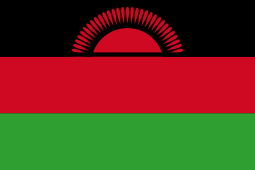
- 1991 : Raji Sourani,
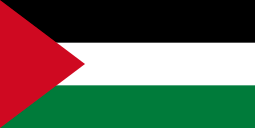

- 1990 : Amilcar Mendez Urizar,
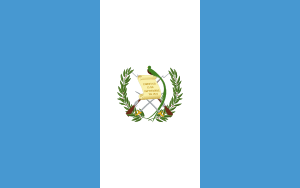
- 1989 : Fang Lizhi,

- 1988 : Gibson Kamau Kuria

- 1987 : Kim Keun Tae and In Jae Keun,

- 1986 : Zbigniew Bujak and Adam Michnik,

- 1985 : Allan Boesak, Beyers Naude and Winnie Mandela,

- 1984 : CoMadres,
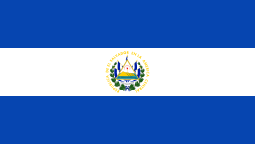
Book Award
The Robert F. Kennedy Book Award was founded in 1980, with the proceeds from Arthur Schlesinger, Jr.'s best-selling biography, Robert Kennedy and His Times. Each year, Robert F. Kennedy Human Rights presents an award to the book which "most faithfully and forcefully reflects Robert Kennedy's purposes - his concern for the poor and the powerless, his struggle for honest and even-handed justice, his conviction that a decent society must assure all young people a fair chance, and his faith that a free democracy can act to remedy disparities of power and opportunity." The Robert F. Kennedy Book Award has been recognized as one of the most prestigious honors an author can receive.[20]
Award winners
- 2016: Once in a Great City: A Detroit Story by David Maraniss
- 2015: The Crusades of Cesar Chavez by Miriam Pawel
- 2014: The Great Dissent by Thomas Healy and special recognition to March: Book One by John Lewis, Andrew Aydin, and Nate Powell
- 2013: The Price of Inequality by Joseph Stiglitz
- 2012: The Justice Cascade by Kathryn Sikkink
- 2011: The Big Short by Michael Lewis
- 2010: Ordinary Injustice by Amy Bach
- 2009: The Dark Side by Jane Mayer
- 2008: Going Down Jericho Road by Michael Honey
- 2007: The Great Deluge by Douglas Brinkley
- 2006: Mirror to America by John Hope Franklin
- 2005: Perilous Times by Jeffrey Stone and We Are All the Same by Jim Wooten
- 2004: Ultimate Punishment by Scott Turow
- 2003: At the Hands of Persons Unknown by Philip Dray and A Problem from Hell by Samantha Power
- 2002: American Patriots by Gail Buckley
- 2001: Without Sanctuary by James Allen and Blood of the Liberals by George Packer
- 2000: Mandela: The Authorised Biography by Anthony Sampson and No Shame in My Game by Katherine Newman
- 1999: Walking with the Wind by John Lewis and Michael D'Orso
- 1998: Race, Crime and the Law by Randall Kennedy and The Soldiers' Tale by Samuel Hynes
- 1997: Worse Than Slavery by David M. Oshinsky
- 1996: Circumstantial Evidence: Death, Life, and Justice in a Southern Town by Pete Earley and The Politics of Rage: George Wallace, the Origins of the New Conservatism, and the Transformation of American Politics by Dan T. Carter
- 1995: Speak Now Against the Day by John Egerton
- 1994: Taming the Storm: The Life and Times of Judge Frank M. Johnson, Jr., and the South's Fight Over Civil Rights by Jack Bass and special recognition to Herbert Block for Herblock: A Cartoonist's Life
- 1993: Earth in the Balance: Ecology and the Human Spirit by Vice President Al Gore
- 1992: Praying for Sheetrock by Melissa Fay Greene
- 1991: The Long Haul by Myles Horton and Herbert and Judith Kohl and The Burning Season: The Murder of Chico Mendes and the Fight for the Amazon Rain Forest by Andrew Revkin
- 1990: Among Schoolchildren by Tracy Kidder and Big Sugar by Alec Wilkinson
- 1989: A Bright Shining Lie by Neil Sheehan and Rachel and Her Children by Jonathon Kozol
- 1988: Beloved by Toni Morrison and Song in a Weary Throat by Pauli Murray
- 1987: Bearing the Cross: Martin Luther King, Jr., and the Southern Christian Leadership Conference, by David J. Garrow
- 1986: Common Ground: A Turbulent Decade in the Lives of Three American Families by J. Anthony Lukas and Reaping the Whirlwind: The Civil Rights Movement in Tuskegee by Robert Norrell
- 1984: Children of War by Roger Rosenblatt
- 1983: Let the Trumpet Sound: The Life of Martin Luther King, Jr. by Stephen B. Oates
- 1982: The Child Savers by Peter S. Prescott
- 1981: Civilities and Civil Rights: Greensboro, North Carolina, and the Black Struggle for Freedom by William Chafe
Journalism Award
The Robert F. Kennedy Journalism Award was established in 1968 by a group of reporters covering Robert Kennedy's presidential campaign and "honors those who report on issues that reflect Robert F. Kennedy's concerns including human rights, social justice and the power of individual action in the United States and around the world." Entries include insights into the causes, conditions and remedies of injustice and critical analysis of relevant public policies, programs, attitudes and private endeavors.
Led by a committee of six independent journalists, the Awards are judged by more than fifty journalists each year. It has become the largest program of its kind and one of few in which the winners are determined solely by their peers. Previous winners include World News anchor Diane Sawyer.[21]
In 2012 May Ying Welsh, Hassan Mahfood, and John Blair from Al Jazeera English won the U.S. Journalism for 2012 Grand Prize for their documentary Bahrain: Shouting in the Dark.[22]
Speak Truth To Power
Speak Truth To Power is the global human rights initiative founded by Kerry Kennedy and Nan Richardson, bringing people face-to-face with courageous human rights heroes. This multifaceted project presents inspiring stories of 51 women and men from over 40 countries who have stood up to oppression at great personal risk in the non-violent pursuit of human rights including demilitarization, children of war, environmental activism, and religious self-determination.[23]
See also
References
- 1 2 3 "Introducing Robert F. Kennedy Human Rights". Archived from the original on 2015-02-18. Retrieved 2015-02-18.
- ↑ "Organization Overview". rfkcenter.org. Archived from the original on January 3, 2012.
- ↑ Staff Writer (October 30, 1968). "RFK Memorial Created" The Hartford Courant, p. 7.
- ↑ Nan Robertson (October 30, 1968). "New Fund Honors Robert Kennedy: Family Plans Foundation to Advance His Ideals". The New York Times. p. 1, 21. (subscription required)
- ↑ "Robert F. Kennedy's Life & Vision". Robert F. Kennedy Human Rights. Archived from the original on 24 August 2016. Retrieved 24 August 2016.
- ↑ Ethel Kennedy
- ↑ Robert F. Smith
- ↑ https://rfkhumanrights.org/people/terry-mazany
- ↑ Anthony Williams
- ↑ Frank Baker
- ↑ https://rfkhumanrights.org/people/peter-barbey Peter Barbey
- ↑ Harry Belafonte
- ↑ https://rfkhumanrights.org/people/tonio-burgos Tornio burgos Torino Burqos
- ↑ https://rfkhumanrights.org/people/tim-cook Tim cook Tim Cook
- ↑ Stephen DeCherney
- ↑ Peter Edelman
- ↑ First Thoughts: No Pain, No Gain?, archived from the original on December 23, 2009, retrieved October 19, 2017
- ↑ "Archived copy". Archived from the original on 2011-01-08. Retrieved 2009-12-21.
- ↑
- ↑ http://rfkcenter.org/book-award-10?view=article&id=871&lang=en/
- ↑ http://www.gather.com/viewArticle.action?articleId=281474977935175&grpId=3659174697244816&nav=Groupspace
- ↑
- ↑ Archived 2008-08-28 at the Wayback Machine.
